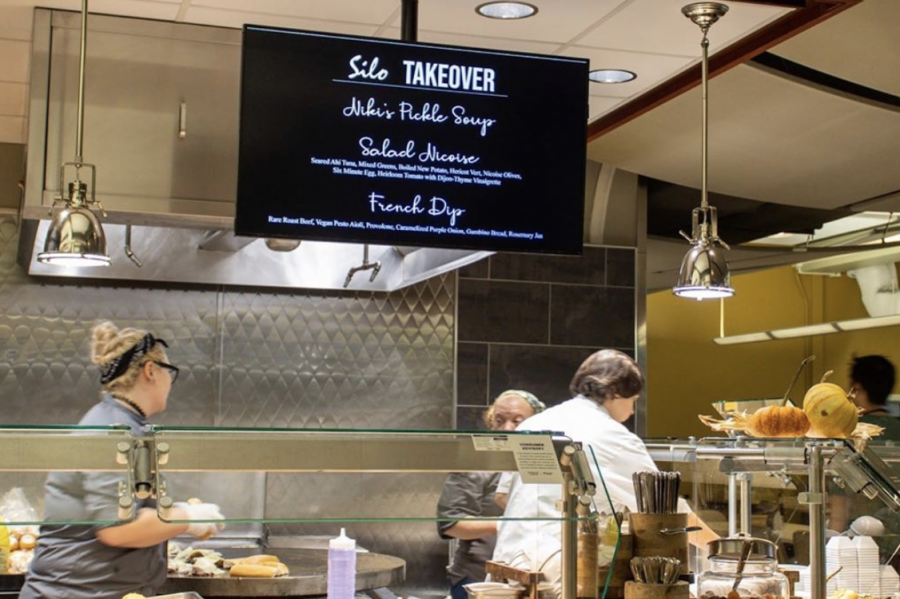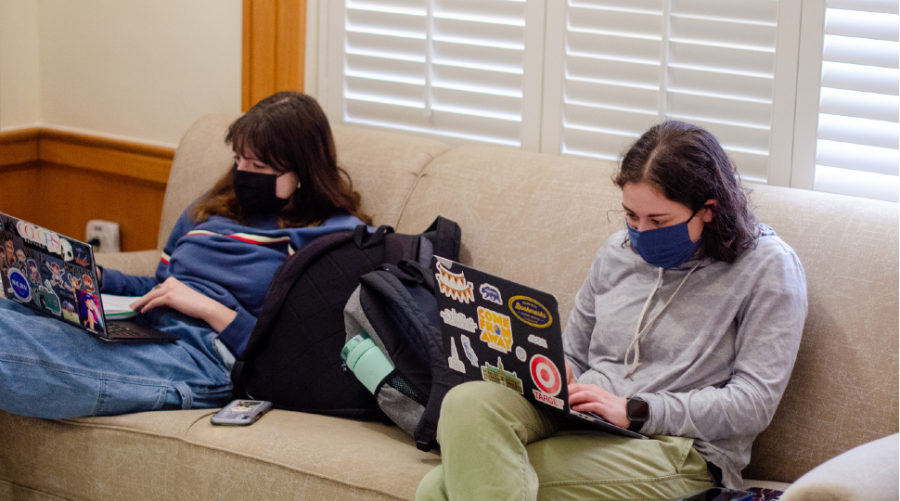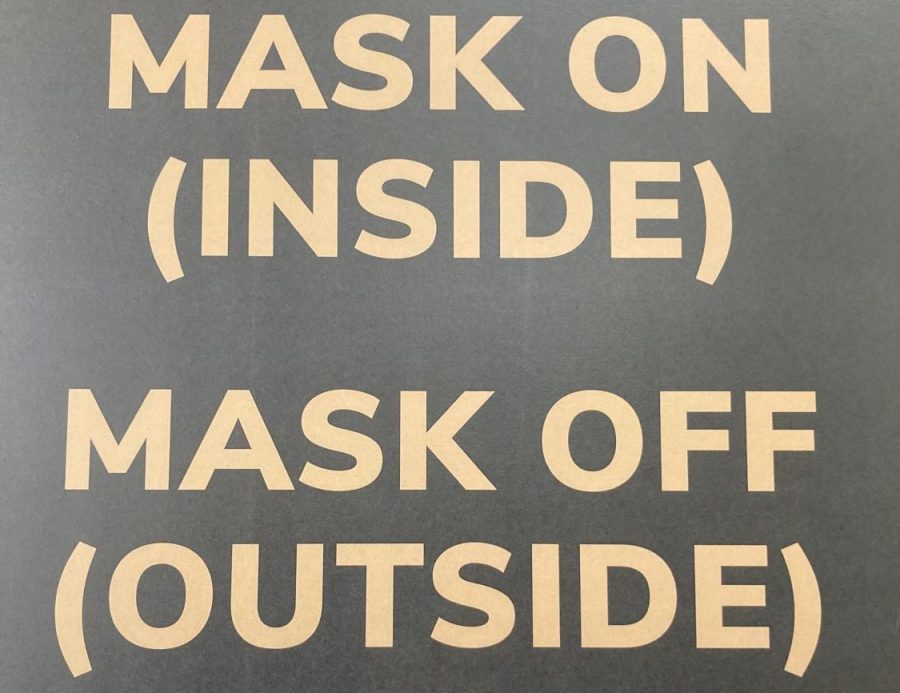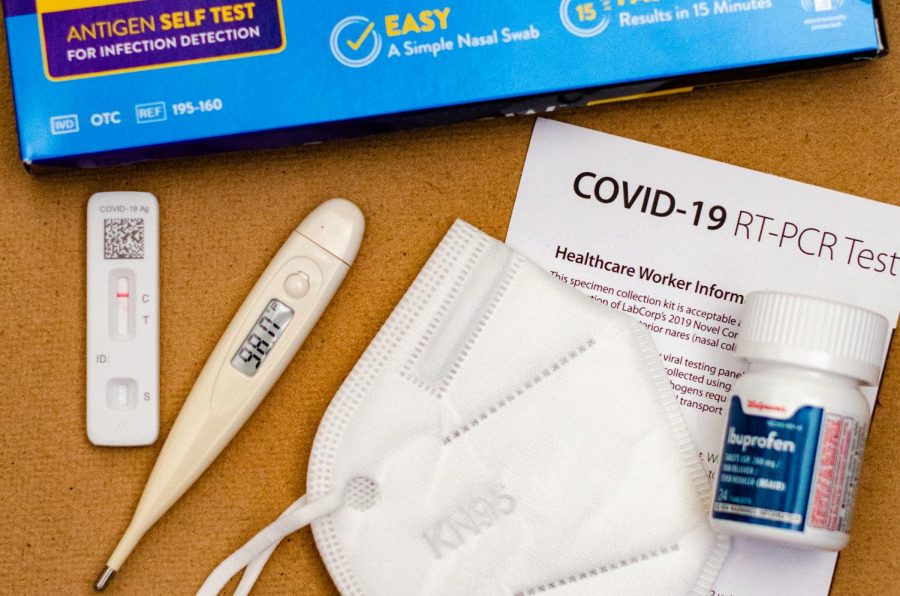If you’re a Zick’s regular, April Galloway already knows your order.
She’s worked at the university for at least six years, often at the cash register. Lately, however, she hasn’t been working, as a result of the COVID-19 pandemic. Her job is hourly, so she’s not getting paid, either.
“I have been out of work since March the 5,” Galloway said.
U.S. unemployment claims have been record-breaking since the onset of the pandemic, which has caused economic upheaval as social distancing is implemented. 3.28 million Americans filed for benefits during the week ending on March 21.
“We talk about how the virus kind of affects everyone equally once you get it. But the truth is it doesn’t,” said Barry Trachtenberg, the Director of Jewish Studies. “It’s these moments of crisis that both highlight and exacerbate those social inequalities.”
‘We are working with Aramark’: The University’s response
Although Galloway is a visible part of the campus community, she technically isn’t a staff member at the university. Food service workers are contracted through Aramark, a food service company. The same goes for cleaning staff, contracted through Budd Group and bookstore workers, contracted through Follet.
After on campus-classes were halted and most students were sent home, the university paid Aramark to “meet hourly employee needs” through the end of the pay period, according to a letter published on the university’s coronavirus website March 23. It’s unclear what will happen next.
“We are working with Aramark on a plan for the next pay period,” the letter said.
Budd workers are still working “through a combination of continued work on campus and demand for additional services at other client sites,” said Hof Milam, executive Vice President at the university.
Follet and Aramark are extending medical benefits to employees who are enrolled in their healthcare plan through June 30, he said.
Milam pointed to the passage of the CARES Act to help employers and the university support their employees, through state and federal relief funds and company support.
“We are working closely with the employers of our staff in dining and custodial services, as well as the operator of our bookstore, with the goal of employees continuing to receive the income they would have received had this public health crisis not occurred,” Milam said.
‘Typically not paid’: Aramark’s response to COVID-19
Contract companies make the ultimate decisions about the pay, benefits and status of many of the workers on the university’s campus.
“Our employees, if the operations are closed, typically are not paid,” Aramark’s CEP John Zillmer was reported as telling Aramark investors in March.
An April 2 letter announced that Aramark executives and some managers had taken a pay cut. “Some … colleagues” would be placed on “temporary furlough.”
Additional sick days will only be provided to some workers. People who work in locations with confirmed cases of COVID-19 or who are quarantined because of symptoms or exposure will get 21 additional days once they use all of their days, according to a letter released March 18.
Medical coverage now lasts through the end of June for those already enrolled in company-paid medical benefits. Employees also have access to a telehealth program and an employee assistance program meant to help manage anxiety.
Further, Aramark has a new job placement program for existing employees. It offers temporary work at other locations for affected hourly workers.
Aramark’s stocks rose 41% March 19 after investors were told that the company would be able to financially weather the pandemic. The company’s stocks are still down 60% from a recent peak in January.
‘Everything just stopped’: Out of work until August
During spring break, Galloway got a text from her manager that said she wouldn’t be coming back the next week and would be updated as her manager received more information.
Days later, Galloway received an email that campus was shutting down.
Another university Aramark employee, Rae Banks, was reported in The Cavalier Daily as explaining that the only communication she received was an email from the director of food services at the university notifying her of being off during the extended spring break. The email did not mention wages.
“[There] was no clarification about employee benefits or pay while being out for the duration of those two weeks,” Banks wrote to The Cavalier Daily. “I’m a person who lives paycheck to paycheck so I can’t go days without working.”
Galloway is unsure when she will be back. She’s received information through Aramark’s job program about working at a different location, but it’s a Bojangles in High Point, not in Winston-Salem.
Beyond the distance from Winston-Salem to High Point, North Carolina is currently under a stay-at-home order until April 29. Although certain essential jobs are exempt, Galloway doesn’t want to be at a job that would put her at risk for contracting the coronavirus.
Like other food service workers at the university, Galloway files for unemployment during the summer. This time is different, though, because there was no advanced warning.
“Everything just stopped,” she said. “Your bills are still going. Rent is due all over again.”
She has been calling every day to file for unemployment, but she keeps getting hung up on, she says. The spike in claims at the North Carolina Department of Employment and Security has led to website crashes and hours on hold for many.
Galloway used all her paid time off to get one last check. Now, her 17-year-old daughter is the only employed member of the household. Galloway wishes that her daughter wasn’t having to put herself at risk by continuing to work.
Galloway said that her landlord has been understanding so far, but eventually she will have to pay the rent.
And she will probably be out of work for a while, until school opens up, or until it’s safer to get a different job in the midst of a global pandemic.
“I’m thinking we’ll come back when school comes back,” Galloway said. “March, April, May, June, July, August. That’s six months.”
‘The University is doing all it can:’ Funds set up to help those with financial hardships
Some members of the university community have stepped forward to help others facing financial hardships.
When Amy Walldorf, class of 2017, heard that many Wake Forest workers weren’t receiving their regular income, she felt that something had to be done.
She set up a GoFundMe to raise funds for the Chaplain’s Fund, which can support contract workers experiencing financial difficulties. So far, it has raised $9,474 as it has been shared among the student and alumni body.
President Nathan Hatch sent out an email to alumni, friends, faculty and staff on March 28 announcing the establishment of the crowdsourced Wake Forest Crisis Response Fund. It can be used to replenish existing funds, like the Chaplain’s Emergency Fund.
It has an initial goal of $500,000 and has raised $277,379 so far. Nathan and Julia Hatch announced in the email that they made a donation of $100,000.
“The University is doing all it can to alleviate the emotional and financial stress impacting members of our community,” Hatch wrote in the email. “I am motivated to work alongside you in making a difference.”
Students seeking assistance should contact the Financial Aid office, said Mary Pugel, the chief of staff in the President’s Office. It can be reached at financial-aid@wfu.edu or 336-758-5154. Faculty, staff and contracted employees can go through the Chaplain’s Office. That contact is Peggy Beckman, beckmapp@wfu.edu.
Beth Hoagland, the assistant provost for budget and planning, will lead a committee to give out the fund, according to an email sent from Milam and Provost Rogan Kersh to faculty and staff on April 8.
Galloway had heard about the GoFundMe, but only because one of the organizers reached out to tell her about it directly. She wasn’t sure how to get the funds. She hadn’t heard of the Crisis Response fund.
“All I know is that we’re closed and that’s it,” she said.
‘People don’t want charity. People want jobs.:’ Some remain critical
Some faculty members are critical of the university’s response.
“People don’t want charity. People want jobs,” said Mir Yarfitz, a professor in the history department. “Charity makes the givers feel better. Jobs make the people with jobs feel better.”
Faculty members were among the first to receive an email about the new fund.
“While I am grateful for President Hatch’s actions, he basically shifted the care of contract workers onto faculty and staff by asking us to donate to help them,” said Simone Caron, the chair of the Women’s, Gender and Sexuality Studies department. “This fund does not provide the guarantee of care to workers, and thus does not ease their stress levels as they wonder if they will be able to afford rent, utilities and food for their families.”
Yarfitz wants workers to be paid to stay at home, even if the university must foot the bill.
“I believe that this institution can afford to take care of those workers and has the moral and ethical responsibility to do so,” he said.
Moreover, he hopes that those workers still coming in are being given necessary safety equipment, hazard pay and a choice about whether or not they want to be working right now.
For many, the situation of contract workers goes all the way back to government policies that result in an inadequate social safety net or prevent labor organizing. Beyond that, institutions and companies also take some of the responsibility.
Or avoid it.
“Almost all universities do [hire contract workers],” explained Trachtenberg. “It’s a way to sort of off-load the administrative responsibilities. It’s a way to not deal with a lot of labor questions.”
When asked about the concerns of faculty members, the communications team provided this response.
“The Aramark Corporation sets policy, pay and benefits for their employees,” said Cheryl Walker, the acting Executive Director of News and Communications. “We continue to work with Aramark, and all of our contractors, to mitigate the impact of the COVID-19 crisis on individuals working on our campus.”
Moreover, the email from Kersh and Milam referenced “new financial constraints” for the university. They wrote, “like all our higher-ed peers, we are experiencing significant losses in expected revenues with numerous refunds and cancellations of programs, as well as uncertainty about when we will resume normal operations.”
‘I’d rather be broke than dead’
At first, Galloway was stressed about being out of a job. She has been at home with her 3-year-old son and high school age daughter, both of whom are home from daycare and school.
Now she’s trying to stay positive. She and her coworkers are getting the break they’ve always wanted, she said.
“If it was my school, I would’ve closed it, too,” she said. “I don’t like the situation. This is awful. But I think it’s the best thing to do. I’d rather be broke than dead.”





















